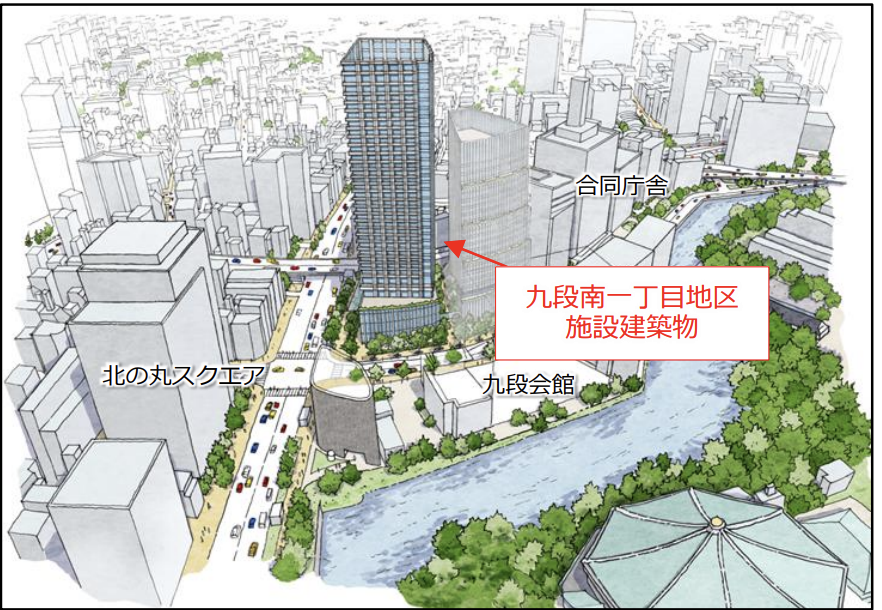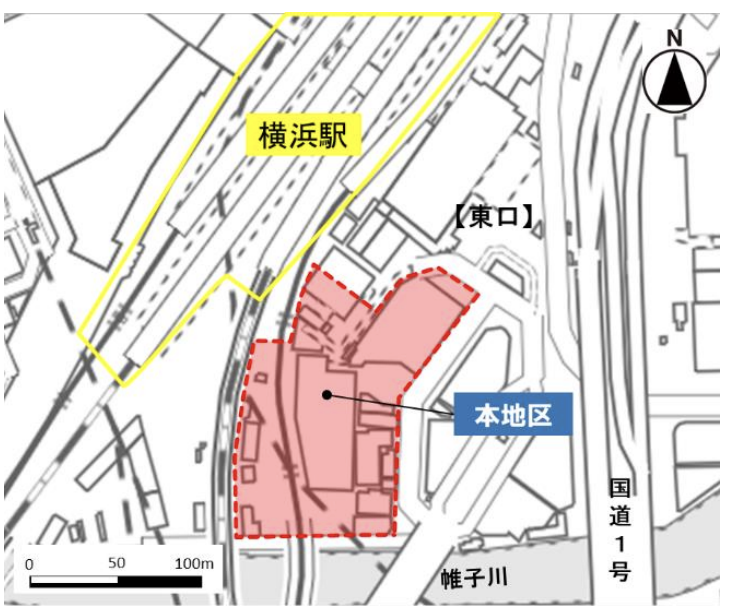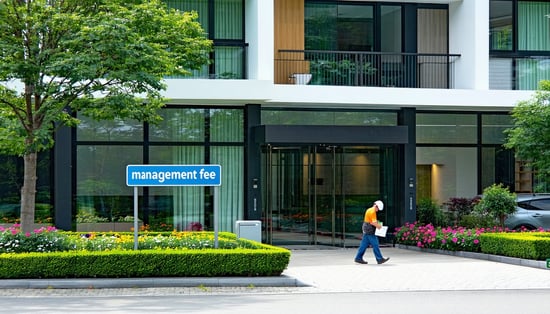In real estate investment, the purchase of a property is only the first step in the investment process. True success depends on the property management that follows.
As INA & Associates, I have had the opportunity to speak with many real estate investors. I am keenly aware of the impact that the choice of management method has on investment returns.
Proper management maintains and improves the property's asset value and ensures stable rental income. On the other hand, negligent management can lead to serious problems such as higher vacancy rates, increased repair costs, and ultimately a decline in property value.
There are two main property management options :outsourced management andself-management. Depending on which one is chosen, investors' profitability, effort, and risk will vary greatly.
In this article, we will compare the differences between outsourced and self-managed property management in detail and suggest the best option for your investment strategy, based on the knowledge we have gained as property management professionals.
Basic Differences between Outsourced and Self-managed Property Management
Understanding the difference between outsourced andself-managed property management is the first step in making the right choice.
What is outsourced property management?
Outsourced property management is a method of hiring a property management company to manage your property. The management company handles everything from tenant recruitment to routine maintenance and troubleshooting, all of which are related to the operation of the property.
The main operations of outsourced property management are as follows
Tenant management
- Tenant recruitment and screening
- Conclusion of lease contracts
- Rent collection and reminder
- Witnessing tenants moving out and settling security deposits
Building management
- Daily and periodic cleaning
- Facility inspection and maintenance
- Arrangement and supervision of repair work
- Management of common areas
Other operations
- Handling of complaints from tenants
- Responding to emergencies
- Preparation of various reports
- Support for legal procedures
What is self-management?
Self-management is a method in which the property owner handles the management of the property himself/herself. Instead of using a management company, the property owner directly communicates with tenants to maintain and manage the property.
The main tasks performed in self-management are as follows
Direct tenant relations
- Interviewing and screening prospective tenants
- Preparation and execution of contracts
- Collecting and reminding tenants of rent
- Witnessing and settling accounts when tenants move out
Property maintenance and management
- Arrangement or implementation of cleaning services
- Arranging for inspection and repair of facilities
- Negotiating with and supervising repair companies
- Management of common areas
Paperwork
- Arrangement of documents required for tax returns
- Management of various contracts
- Recording and management of income and expenditures
The most significant difference between the two is the entity that performs the work and where the responsibility lies. In outsourced management, a management company with professional knowledge and experience is in charge of the work, while in self-management, the property owner himself/herself bears all responsibilities.
Advantages, Disadvantages, and Costs of Outsourced Management
Advantages of Outsourced Management
Utilization of professional knowledge and experience
Property management companies have years of experience and expertise. They can utilize expertise that is difficult for individuals to acquire, such as legal knowledge, understanding of market trends, and efficient business processes.
Legal knowledge of lease agreements is particularly important. The relevant laws, such as the Land and Building Lease Law, the Building Lots and Buildings Transaction Business Law, and the Consumer Contract Law, are complex and can cause problems if not handled properly.
Saving Time and Effort
The biggest advantage of outsourced management is that it saves property owners a great deal of time and effort. The management company receives tenant communications and responds to emergencies 24 hours a day.
For investors with day jobs, this time savings is extremely valuable. Not being overwhelmed with management tasks, they have more time to focus on their core business or consider new investment opportunities.
Stable tenant retention
Management companies have their own tenant recruitment network. They can post information on real estate portals, collaborate with brokers, and develop effective advertising strategies, all of which are difficult for individuals to accomplish on their own.
In tenant screening, the company can also conduct professional screening processes, such as checking credit information, scrutinizing income proof, and collaborating with guarantee companies.
Improved Risk Management
Management companies have measures in place to deal with a variety of risks. They can respond quickly and appropriately to problems that may arise, such as rent arrears, equipment breakdowns, and tenant problems.
Disadvantages of Outsourced Management
Incurrence of management costs
The biggest disadvantage of outsourced management is the management cost. Generally, a management fee of 3-8% of rent income is required, which directly affects profitability.
Dependence on the management company
Since all operations are dependent on the management company, the quality of the management company will greatly affect how the property is managed. If the management company is chosen incorrectly, the expected results may not be achieved.
Decreased Owner Involvement
Outsourcing the management of a property reduces the opportunity to directly monitor the property's condition and tenants. This may result in missed problems or improvements to the property.
Management Outsourcing Cost Rates
| Type of Management Services | Market rate of expenses | Remarks |
|---|---|---|
| Basic management fee | 3-5% of rent income | Varies depending on the area and property type |
| Tenant Recruitment Fee | 1 month's rent | Only charged when a contract is signed |
| Contract renewal fee | 0.5 to 1 month's rent | Occurs only at the time of renewal |
| Fee for moving out | 10,000 to 30,000 yen | Occurs only when moving out |
| Repair work supervision fee | 5-10% of construction cost | Only when repair work is performed |
| 24-hour emergency response | 1,000-3,000 yen per month | Optional services |
Since these fees vary by management company, it is important to obtain quotes from multiple companies and compare them along with their service offerings.
Advantages and disadvantages of self-management and necessary knowledge
Advantages of self-management
Reduction of management costs
The biggest advantage of self-management is that there is no need to pay commissions to the management company. This saves management fees, which are equivalent to 3-5% of rent income, and directly leads to increased profitability.
For example, if a property with a monthly rent of 1 million yen is outsourced to a management company, the annual management fee would be 360,000 yen to 600,000 yen. By making the property self-managed, this cost can be kept as it is as revenue.
Detailed understanding of property conditions
With self-management, you can directly grasp the status of the property. It is easier to notice even the smallest changes, such as the living conditions of tenants, the deterioration of facilities, and the condition of common areas.
This detailed understanding enables early detection and early response to problems, resulting in reduced repair costs and maintenance of property value.
Building direct relationships with tenants
By communicating directly with tenants, we can build a relationship of trust. Building a good relationship with tenants can lead to long-term occupancy, reduce vacancy risk, and lower restoration costs.
Flexible response
Because there is no management company involved, we can respond quickly and flexibly to tenant requests and problems. Owners can act immediately at their own discretion in the event of emergencies or when special attention is needed.
Demerits of self-management
Burden of time and effort
With self-management, the owner must perform all management tasks himself/herself. A considerable amount of time and effort is required to respond to tenant communications, patrol the property, and hold meetings with contractors.
In particular, emergency services are available 24 hours a day, which can affect your personal time.
Lack of expertise
Property management requires a wide range of expertise, including legal, architectural, and tax knowledge. Lack of such knowledge may prevent proper decisions and cause problems.
Difficulty in recruiting tenants
Individuals have limited ability to recruit tenants compared to management companies. There is a risk of prolonged vacancy periods due to the limited number of places to place advertisements and the difficulty of cooperating with brokers.
Burden of dealing with risks
Owners themselves must deal with a variety of risks, including rent arrears, equipment failure, and tenant problems. Failure to respond appropriately may cause problems to escalate.
Knowledge and skills required for self-management
| Field | Required Knowledge and Skills | Importance |
|---|---|---|
| Legal knowledge | Land and Building Lease Law, Building Lots and Buildings Business Law, Civil Code | ★★★★★ |
| Tax knowledge | Real estate income, depreciation, expense recognition | Taxation |
| Construction knowledge | Building structure, equipment, repair methods | Building structure, facilities, repair methods |
| Tenant relations | Communication, complaint handling | Contract preparation |
| Contract drafting | Lease agreements and important information documents | ★ ★ ★ ★ ★ ★ ★ ★ ★ ★ ★ ★ ★ ★ ★ ★ ★ ★ |
| Market analysis | Market rent, competitive property research | Accounting |
| Accounting | Income and expenditure management, bookkeeping | Emergency response |
| Emergency response | 24-hour response system, contractor arrangements | ★★★★ |
It takes considerable time and effort to acquire these knowledge and skills. Continuous learning is also essential to keep up with changes in laws and systems.
Detailed comparison of outsourcing vs. self-management
Cost Comparison
| Item | Outsourced Management | Self-management | Difference (annual) |
|---|---|---|---|
| Basic management fee | 3-5% of rent income | 0 yen | 360,000 yen to 600,000 yen*. |
| Tenant Recruitment Fee | 1 month's rent | Advertising and other actual expenses | 50,000 yen - 150,000 yen |
| Contract preparation costs | Included in management fee | Request for administrative scrivener: 30,000-50,000 yen | △30,000 yen to △50,000 yen |
| Emergency response fee | 1,000-3,000 yen per month | Self-response | 12,000 yen to 36,000 yen |
| Repair work supervision fee | 5-10% of construction cost | Self-supervision | Depends on repair cost |
*Assuming a property with a monthly rent of 1,000,000 yen
Comparison of time and labor
| Work | Outsourced management | Self-management | Monthly time difference |
|---|---|---|---|
| Tenant Relations | Conducted by management company | Owner response | 5 to 10 hours |
| Property patrol/inspection | Conducted by management company | Conducted by owner | 2 to 4 hours |
| Arrangement and attendance of contractors | Management company conducts inspection | Owner to carry out | 3-6 hours |
| Paperwork | Performed by management company | Performed by owner | 2 to 3 hours |
| Emergency response | 24-hour service | Owner will respond | Irregular |
| Total Monthly Hourly Difference | -1.5 hours per month | - - - - - - - - - - - - - - | 12 to 23 hours |
Risk Comparison
| Risk Item | Outsourced Management | Self-managed | Risk Level |
|---|---|---|---|
| Legal troubles | Management company handles | Owner handles | Self-management: High |
| Rent delinquency | Professional demand and collection | Individual demand and collection | Self-management: High |
| Equipment breakdown | 24-hour response system | Depends on owner's responsiveness | Self-management: Medium |
| Vacancy period | Professional recruiting activities | Personal recruiting ability | Self-management: High |
| Tenant problems | Professional response | Depends on owner's ability to respond | Self-management: Medium |
| Bankruptcy of management company | Management company selection risk | No risk | Outsourced management: Low |
Profitability Comparison Simulation
Assumptions
- Property price: 30 million yen
- Monthly rent: 100,000 yen (1.2 million yen per year)
- Management fee: 5% (60,000 yen per year)
| Item | Outsourced management | Self-management | Difference |
|---|---|---|---|
| Annual rental income | 1.2 million yen | 1.2 million yen | -1.2 million yen |
| Management fee | △ 60,000 yen | 0 yen | +60,000 yen |
| Other management fees | 20,000 yen | △50,000 yen | △30,000 yen |
| Actual annual income | 1.12 million yen | 1,150,000 yen | +30,000 yen |
| Real Yield | 3.73% (3.83%) | 3.83% (0.1%) | +0.1 |
This comparison shows that self-management has an annual advantage of 30,000 yen and 0.1% in yield. However, these figures do not take into account time costs.
Recommended Management Methods by Investment Scale
| Investment Scale | Number of properties | Recommended Management Method | Reason |
|---|---|---|---|
| Small investment | 1-2 units | Self-managed | Great cost savings |
| Medium-scale investment | 3-5 units | Combination of outsourcing and self-management | Selection based on property characteristics |
| Large-scale investment | More than 6 units | Outsource management | Emphasis on efficiency and professionalism |
| Remote investment | Any distance | Outsourced management | Due to physical constraints |
How to Choose the Best Management Method for You
The choice of property management method depends on the investor's situation and goals. We hope that the following decision criteria will help you make the best choice.
Cases in which you should choose outsourced management
Those who are busy with their main business
We recommend outsourcing management to those who want to concentrate on their core business or who do not have enough time to spare. You can avoid the risk of having your core business interfered with by time consuming management tasks.
Those who own properties in remote locations
For those who live far from the property, self-management is difficult due to physical constraints. Since it is difficult to respond to emergencies and make regular patrols, outsourced management is a realistic option.
Those who own multiple properties
Generally, those who own more than 10 properties will have a greater burden of management tasks. Considering efficiency and professionalism, outsourced management is a better choice.
Those with little experience in property management
If you are just starting to invest in real estate or have little experience in property management, we recommend that you start with outsourced property management.
Cases in which self-management should be chosen
Those who have more time to spare
Retirees and those with more time to spare can enjoy the benefits of self-management. You can also deepen your knowledge of real estate investment through management services.
Those who own properties in the neighborhood
If the property is close to your home, it is easier to patrol and respond to emergencies. Travel time and transportation costs can also be minimized.
For those with a small investment of one or two units
If the number of properties is small, the management workload is limited. The reduction in management fees is also relatively large.
Those with extensive knowledge and experience in property management
Those with experience in the construction or real estate industry can utilize their expertise for efficient self-management.
Proposed phased approach
Initial stage: Start with outsourced management
When starting a real estate investment, we recommend starting with outsourced management. By observing the work of the management company, you can learn the details and flow of the management operations.
Mid-term stage: Partial self-management
Once you become familiar with the management operations, consider shifting some of the operations to self-management. For example, you can ask the management company to recruit tenants, but self-manage the day-to-day management of the property.
Long-term phase: complete self-management or professional outsourcing
Once you have gained sufficient experience and knowledge, you can choose to move to full self-management or outsource to a more professional management company.
Summary: Successful investment strategies based on the choice of property management method.
There are clear advantages and disadvantages to both outsourced and self-managed property management. The key is to make the best choice for your situation and investment goals.
Features of Outsourced Management
- Emphasis on professionalism and efficiency
- Saves time and effort
- Stable management can be expected
- Management fees are incurred
Features of self-management
- Cost reduction and profitability improvement
- Detailed understanding of property conditions
- Build direct relationships with tenants
- High time and labor burden
The key to success in real estate investment is to select the most appropriate management method based on a comprehensive assessment of the investment size, location, and personal circumstances.
In addition, management methods are not fixed. It is important to review it flexibly according to the accumulation of investment experience, changes in the number of properties, and changes in life stages.
We at INA&Associates K.K. are happy to suggest the most appropriate management method for each investor's situation. If you have any questions about property management, please feel free to contact us. We are here to support your real estate investment success.
Frequently Asked Questions (FAQ)
Q1. Is it possible to change from outsourced management to self-management?
A1. Yes, it is possible. However, there is usually a three-month notice period in the management contract. It is necessary to confirm the contents of the contract and follow the appropriate procedures. In addition, when changes are made, procedures such as notifying tenants, taking over various documents, and changing the contract with the contractor are required.
Q2. What is the most difficult task in self-management?
A2. The most difficult work is to respond to complaints from tenants and to deal with emergencies. In particular, responding to emergencies during the night and on holidays can be mentally and physically taxing. In addition, demanding rent in arrears and legal procedures are also difficult tasks that require specialized knowledge and experience.
Q3. What are the key points in choosing a management company?
A3. The key points for selecting a management company are as follows
- Confirmation of management track record and reputation
- Balance between management fees and service content
- Availability of a 24-hour response system
- Strength of tenant recruiting ability
- Regular reporting system
- Expertise and responsiveness of the person in charge
We recommend that you obtain quotes from multiple companies and make a decision after actually meeting with them.
Q4. Are there any qualifications required for self-management?
A4. No special qualifications are required for self-management. However, you can systematically learn specialized knowledge by acquiring qualifications such as a real estate transaction specialist, chief administrator, or rental real estate business manager. These qualifications help improve the quality of self-management.
Q5. Is it possible to use both outsourced management and self-management?
A5. Yes, it is possible. For example, you can ask a management company to handle tenant solicitation and contracting, while self-managing the day-to-day management. Also, if you own multiple properties, it is possible to change the management method for each property. We recommend that you flexibly combine these methods according to your own situation.

Daisuke Inazawa
Representative Director of INA&Associates Inc. Based in Osaka, Tokyo, and Kanagawa, he is engaged in real estate sales, leasing, and management. He provides services based on his extensive experience in the real estate industry. Based on the philosophy that “human resources are a company's most important asset,” he places great importance on human resource development. He continues to take on the challenge of creating sustainable corporate value.

.png)













